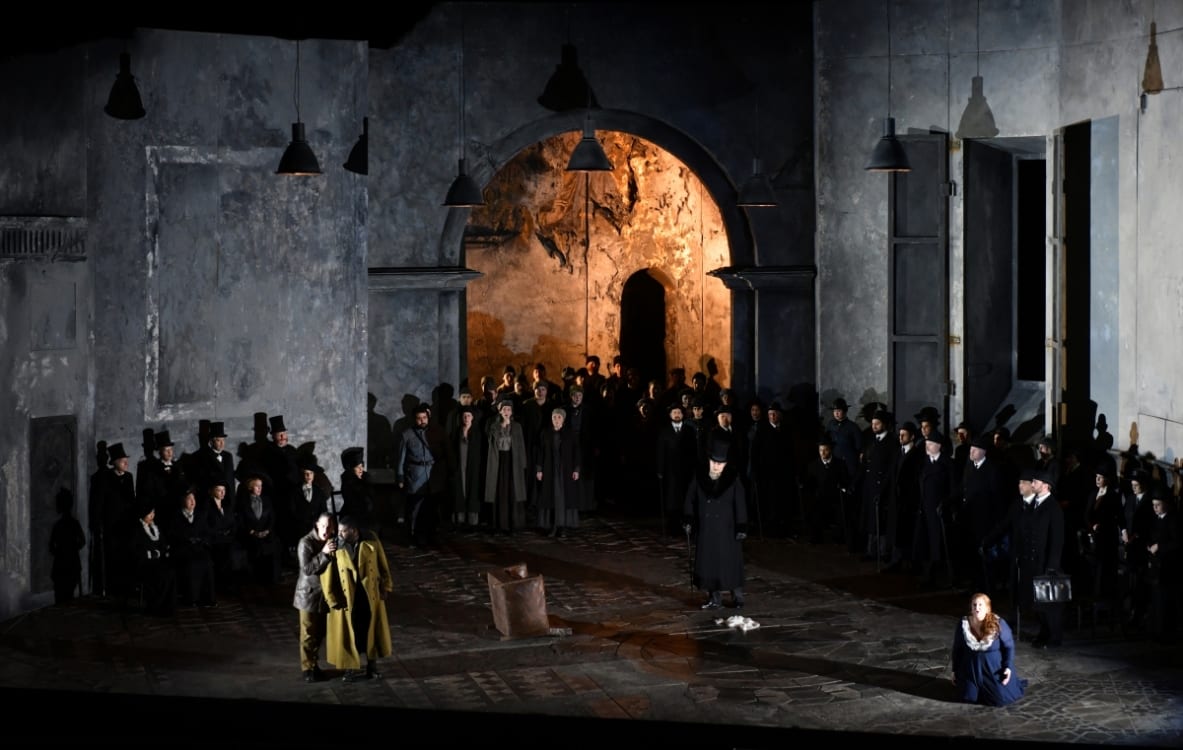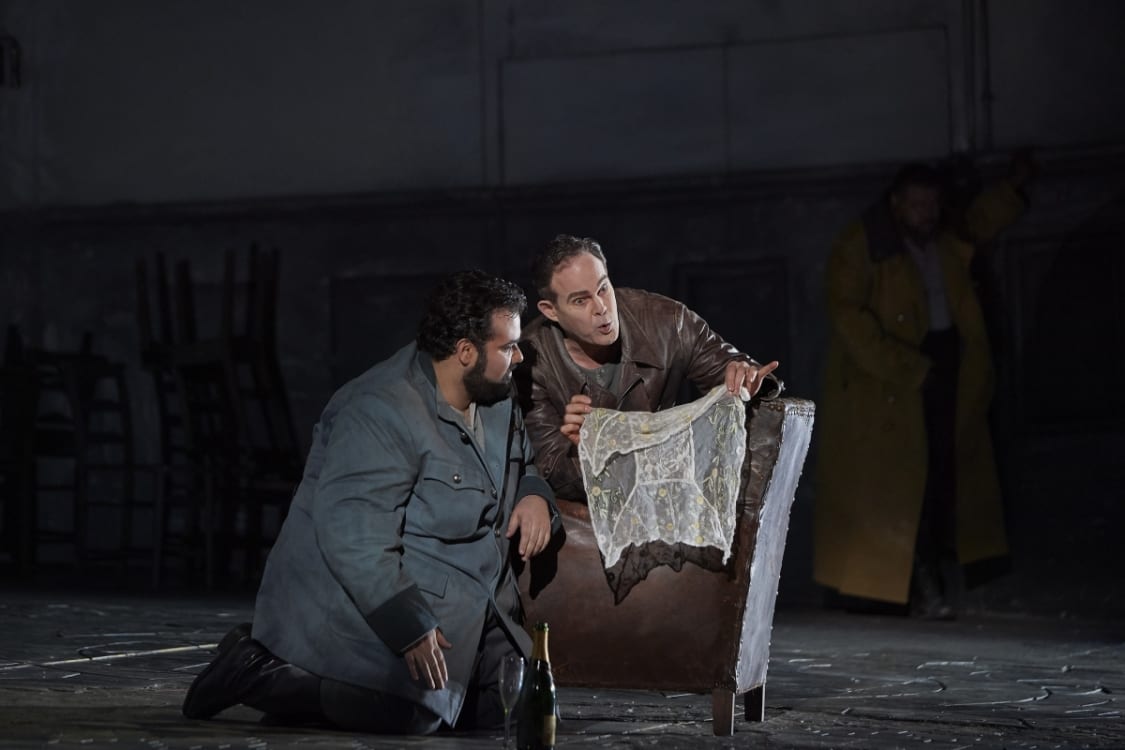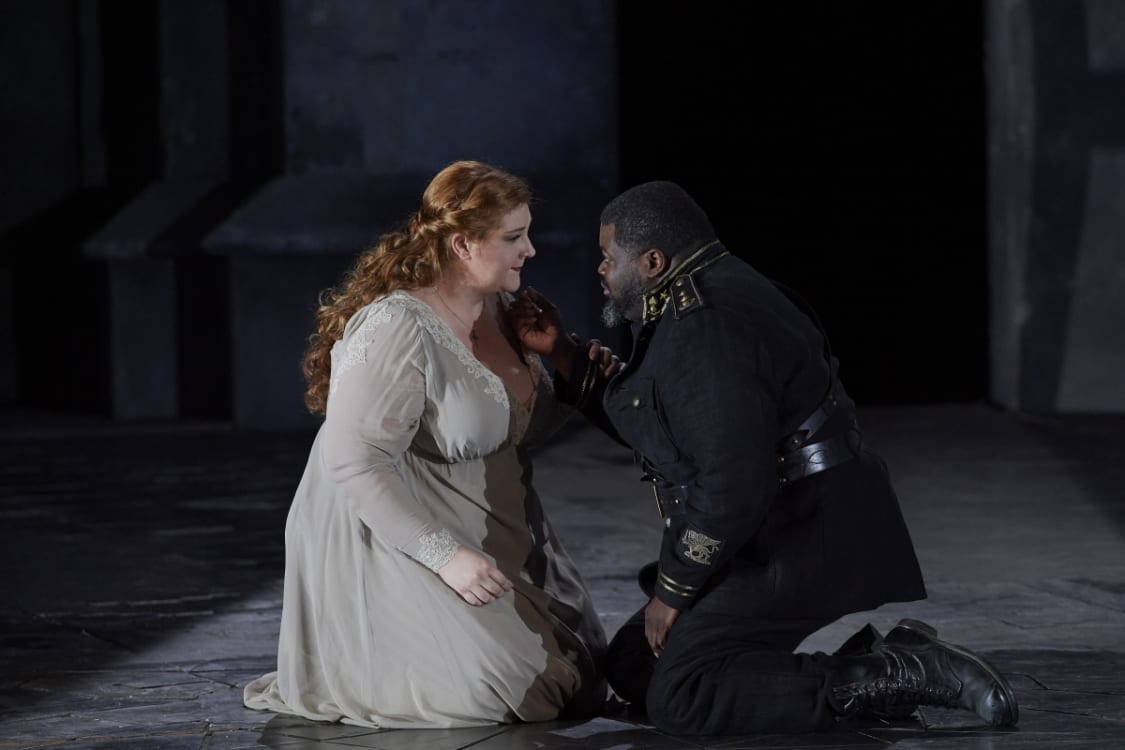I will readily admit that Otello is my personal favorite of all Verdi operas. The magnificent choruses, searing ensembles, and tender arias, all framed by the rich orchestration of Verdi’s later work, make for an opera that fulfils in every way. While the COC’s revival of their 2010 production of Otello is thoughtful, with exceptional soloists, and a powerhouse of a chorus, it doesn’t quite deliver the emotional tension that the work demands.
David Alden chooses to set this production in an abstract archetypal space that roughly approximates the period in which the opera was written. A bare minimalist set and costumes that are excessively subdued suggest that the focus of the production lies squarely in the power of individual performances. Such an approach to grand opera needs some effort at the dramatic balance that allows an audience to shift and grow with the characters on stage. But sadly, the somewhat stagnant staging and choreography of movement, even though it evoked the sense of a Greek chorus, contributed to muting the intense psychological and social explorations of character that are the defining attributes of the tragedy of Otello.

The shining stars of tonight’s performance are the Canadian Opera Company Chorus under the direction of Sandra Horst. The opera’s opening chorus “Esultate! L’Orgoglio Musulmano Sepolto è in Mar” was a veritable paean, delivering a tidal wave of perfectly balanced vocal force that swept up the audience in its power. In equal capacity, the COC Orchestra, under the baton of Johannes Debus, produced a highly refined, burnished sound, with perfect ensemble balance and build, through all four acts of the opera.

Canadian baritone Gerald Finley’s Iago ruled the day with a menacing vocal force that delivered the pure malevolence one expects from his role. As Desdemona, Tamara Wilson, brought such range, tenor, and dramatic control to her performance, that she had stolen her audience away from the moment she stepped on stage. Russell Thomas, as Otello, delivered a subtle and exceptionally nuanced performance; his voice explored Otello from a profoundly internal space. Unfortunately, this somewhat introspective performance was not quite able to deliver the power and emotional arc of Otello’s descent into a personal hell.
Otello speaks to the preoccupations that define our time: our deep anxieties of racial otherness, our profoundly normalized misogyny, our class biases and insatiable greed—each a dark mirror held up to reflect our human fallacies. Whether you are enthralled by the opera’s psychological explorations of human frailty, or whether you’re just there to sit back and enjoy that penultimate Verdi, the COC’s production of Otello provides the musical delight that a good production of a great opera can deliver.

